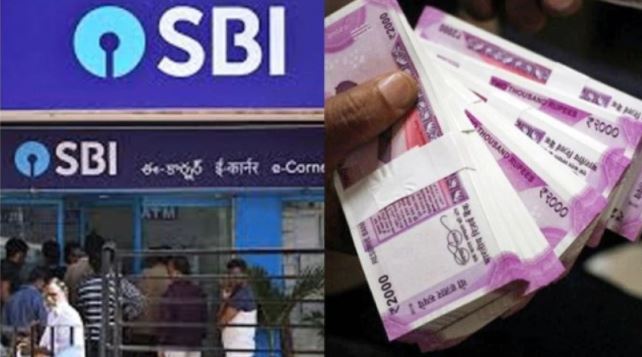
SBI Scheme: FDs of banks are still a good investment option for fixed income. In this, money can be doubled with minimal risk or without taking any risk. The country’s largest bank SBI also offers FDs schemes of different tenures to its customers.
Customers get the facility of FDs ranging from 7 days to 10 years. On FDs of different maturities, SBI gives annual interest ranging from 3% to 6.5% to regular customers and 3.5% to 7.5% to senior citizens.
SBI Scheme: ₹2 lakh in 10 years on ₹1 lakh deposit
Suppose, a regular customer deposits a lump sum of Rs 1 lakh in SBI’s 10 year maturity scheme. According to SBI FD Calculator, the investor will get a total of Rs 1,90,555 on maturity at an interest rate of 6.5 percent per annum. In this, there will be fixed income of Rs 90,555 from interest.
On the other hand, a senior citizen deposits a lump sum of Rs 1 lakh in SBI’s 10 year maturity scheme. According to SBI FD Calculator, senior citizens will get a total of Rs 2,10,234 on maturity at 7.5 percent annual interest rate. In this, there will be fixed income of Rs 1,10,234 from interest.
SBI FDs: Tax on interest income
FDs of banks are generally considered safe. This is a good option for investors who do not take risk. The benefit of tax deduction under Section 80C is available on 5 year tax saving FD. However, the interest received from FD is taxable. According to Income Tax Rules (IT Rules), Tax Deduction at Source (TDS) is applicable on FD schemes.
That is, the amount received on maturity of FD will be considered as your income and you will have to pay tax as per the slab rate. According to IT rules, the depositor can submit Form 15G/15H for exemption from tax deduction.
Deposits up to Rs 5 lakh are insured
If you are a bank customer, you must know that if your bank defaults or goes bankrupt, you get an insurance cover of up to Rs 5 lakh on the amount deposited in the bank. This amount is given to the customer by the Deposit Insurance and Credit Guarantee Corporation (DICGC). DICGC is a wholly owned company of the Reserve Bank.
DICGC insures the banks of the country. Earlier, under this Act, in case of bank sinking or bankruptcy, an amount of up to Rs 1 lakh was given, but the government has increased it to Rs 5 lakh. Foreign banks which have branches in India also come under its purview.





